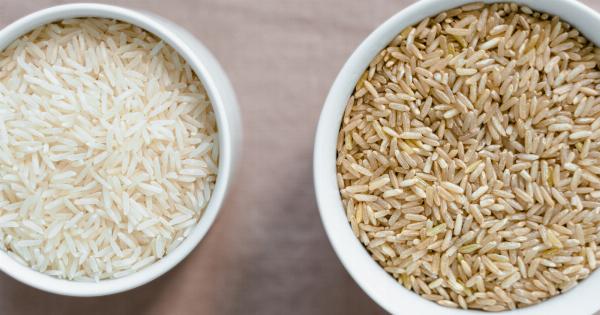Inflammatory bowel diseases (IBD) refer to a group of chronic conditions that affect the gastrointestinal tract.
These diseases cause inflammation in the digestive system, which can lead to a range of symptoms such as diarrhea, abdominal pain, and weight loss. IBD takes two main forms: Crohn’s disease and ulcerative colitis. Both conditions share some similar characteristics, but they each have unique symptoms, causes, and complications.
Crohn’s Disease
Crohn’s disease is a type of IBD that can affect any part of the digestive system, from the mouth to the anus. However, it typically occurs in the small intestine and the beginning of the large intestine.
The inflammation caused by Crohn’s disease can cause ulcers in the digestive tract and can also affect the deeper layers of the intestinal wall. This can lead to complications such as abscesses, blockages, and fistulas.
Ulcerative Colitis
Ulcerative colitis (UC) is a type of IBD that affects the colon and rectum. The inflammation caused by UC typically starts in the rectum and spreads to the colon.
This can cause ulcers in the lining of the large intestine, which can then bleed and produce pus. The inflammation can also cause the colon to empty frequently, leading to diarrhea.
Causes of IBD
The exact cause of IBD is not yet known, but researchers believe it is due to a combination of genetic, environmental, and immunological factors.
While these factors are not yet fully understood, research has shown that there are some common risk factors for developing IBD:.
- Family history: If you have a close family member with IBD, you are more likely to develop it yourself.
- Age: IBD usually develops before the age of 30, although it can occur at any age.
- Smoking: Smoking has been shown to increase the risk of developing Crohn’s disease.
- Diet: Some studies have suggested that a diet high in sugar and fat, and low in fruits and vegetables, may increase the risk of developing IBD.
- Stress: While stress has not been proven to cause IBD, it can worsen symptoms in some people.
Symptoms of IBD
The symptoms of IBD can vary depending on the severity of the inflammation and the location of the inflammation in the digestive system. Some common symptoms of IBD include:.
- Diarrhea
- Abdominal pain and cramping
- Blood in the stool
- Weight loss
- Anemia (low red blood cell count)
- Fatigue
Complications of IBD
Over time, the inflammation caused by IBD can lead to a number of complications, including:.
- Strictures: These are narrowed areas in the digestive tract that can cause blockages and pain.
- Perforations: In severe cases, the inflammation can cause a hole to form in the wall of the intestine, which can lead to infection and sepsis.
- Fistulas: These are abnormal connections between different parts of the intestine or between the intestine and other organs, such as the bladder or vagina.
- Malnutrition: Chronic inflammation can make it difficult for the body to absorb nutrients from food, leading to malnutrition.
- Colon cancer: People with UC have an increased risk of developing colon cancer, especially if the condition is not well controlled.
Diagnosis of IBD
Diagnosing IBD can be challenging. The symptoms of IBD are similar to those of other digestive disorders, such as irritable bowel syndrome (IBS), and the inflammation may not be visible during a routine exam.
To diagnose IBD, your doctor may need to order a combination of tests, including:.
- Blood tests: These tests can show signs of inflammation in the body.
- Stool tests: These tests can check for infections and other causes of diarrhea.
- Colonoscopy or endoscopy: These tests allow your doctor to look inside your digestive tract and take samples of tissue for testing.
- CT scan or MRI: These imaging tests can show the extent of inflammation in the digestive tract.
Treatment of IBD
While there is no cure for IBD, there are a variety of treatments that can help manage symptoms and reduce inflammation. Some common treatments for IBD include:.
- Medications: These may include anti-inflammatory drugs, immunosuppressants, and biologics.
- Dietary changes: Some people with IBD find that changing their diet can help reduce symptoms.
- Surgery: In some cases, surgery may be necessary to remove damaged areas of the digestive tract.
- Lifestyle changes: Stress reduction techniques, such as meditation and yoga, may help reduce symptoms.
Prevention of IBD
While there is no sure way to prevent IBD, some lifestyle changes may help reduce the risk of developing the condition:.



























